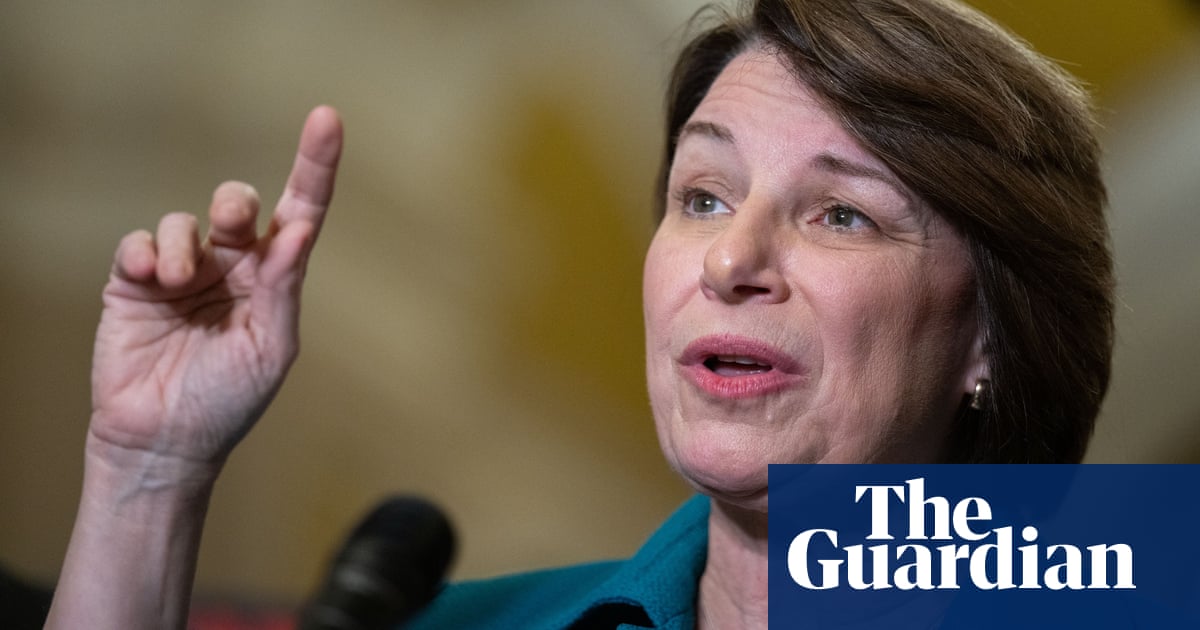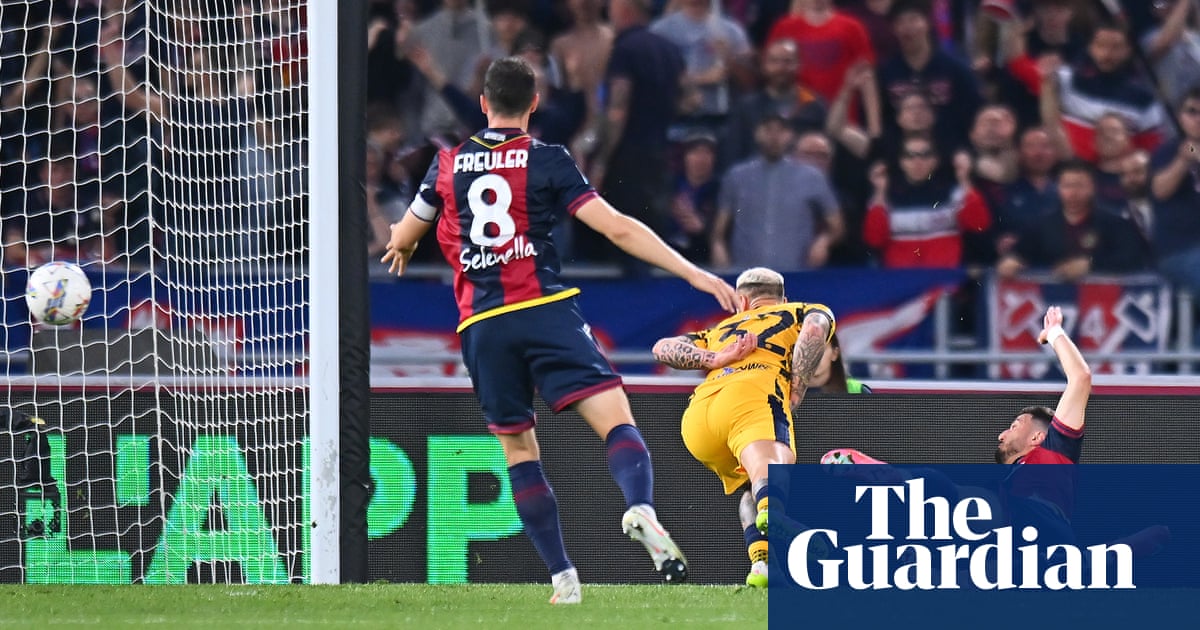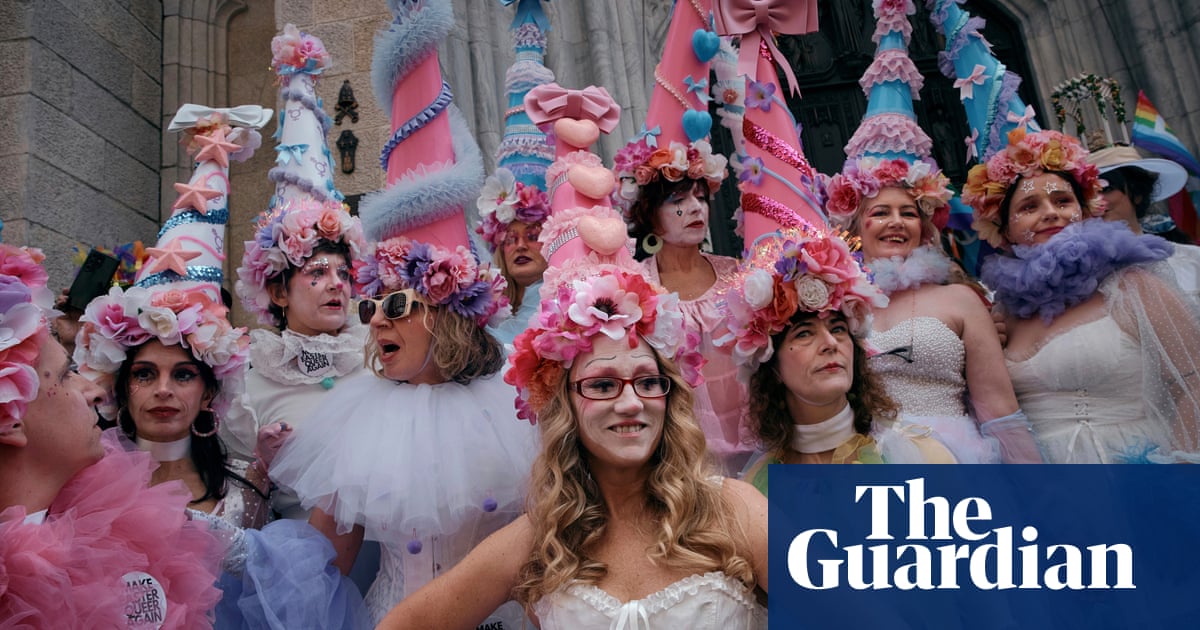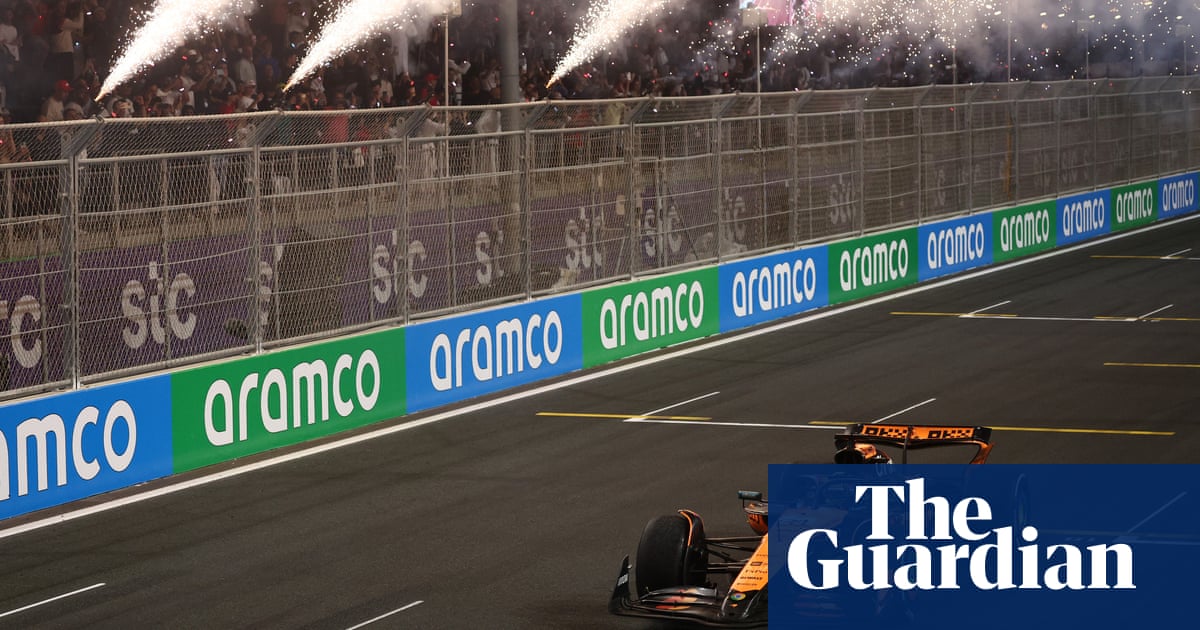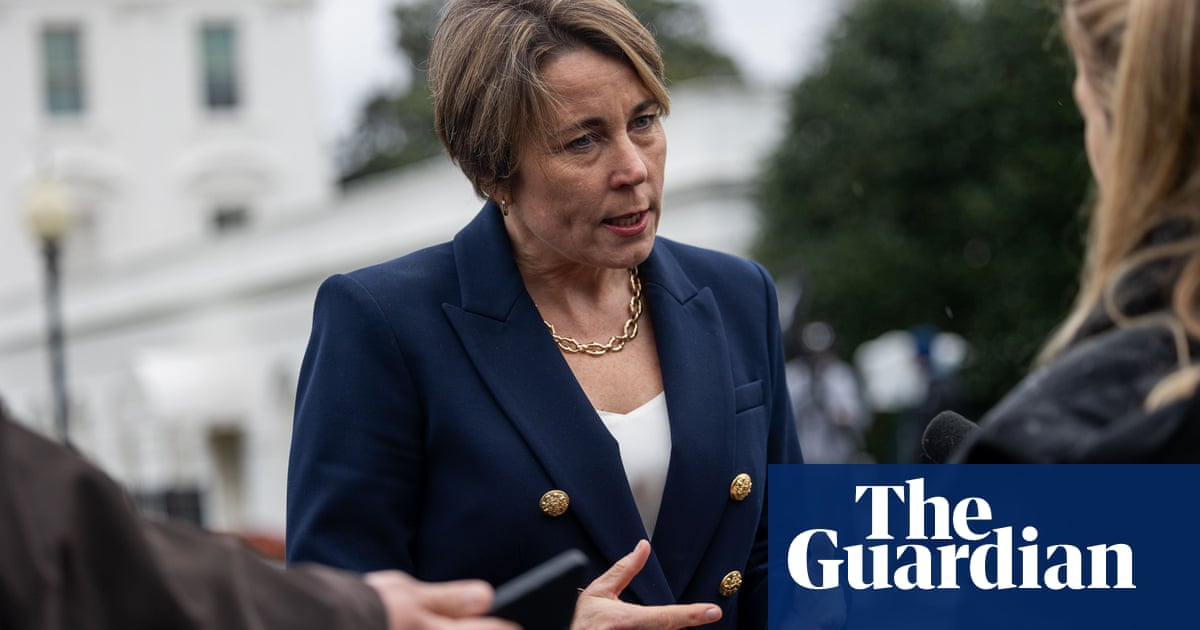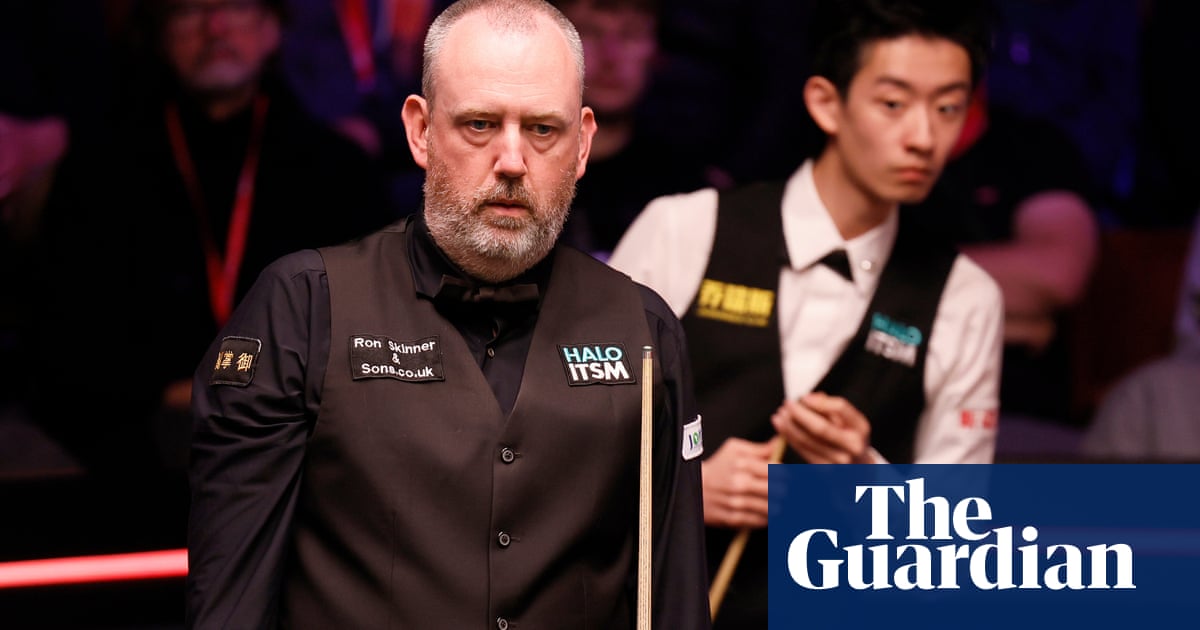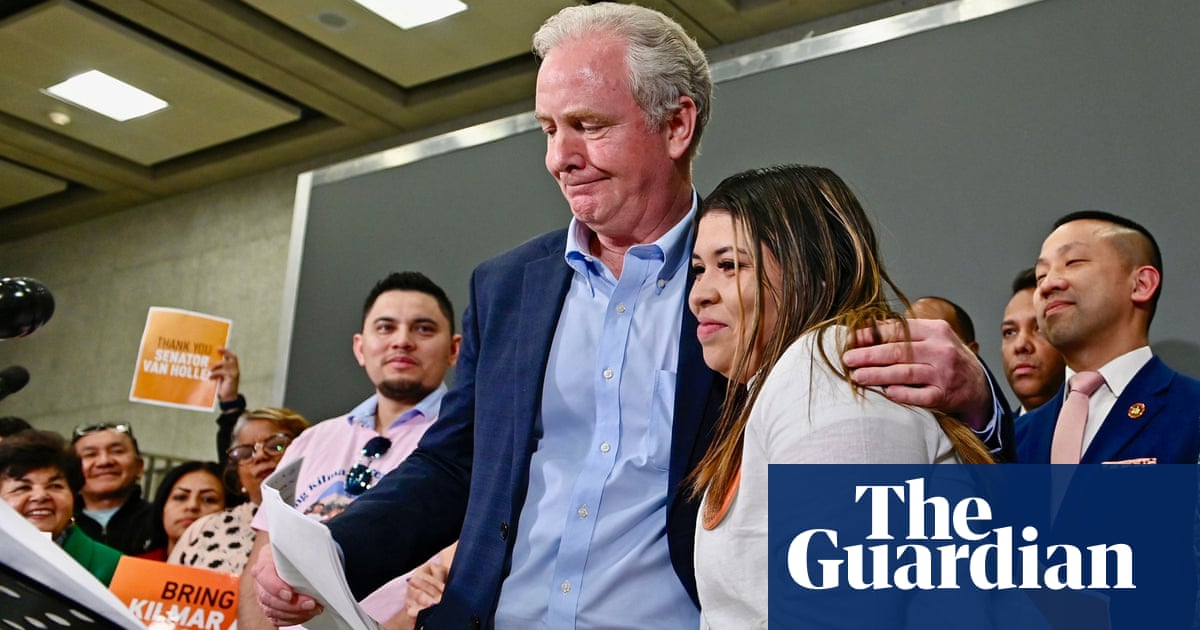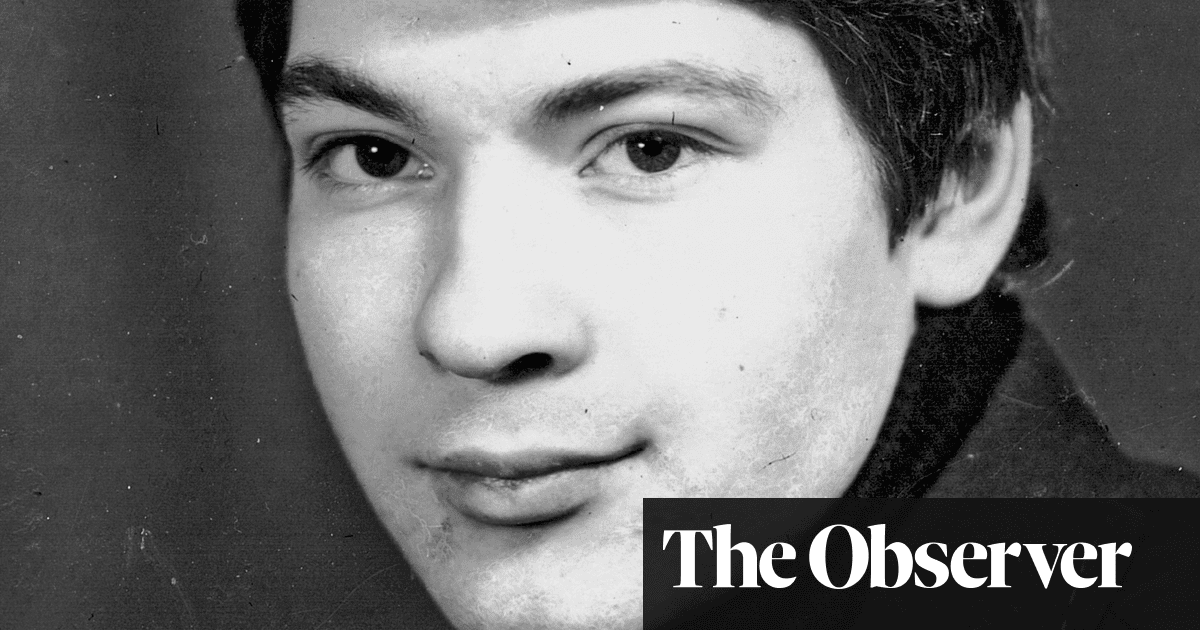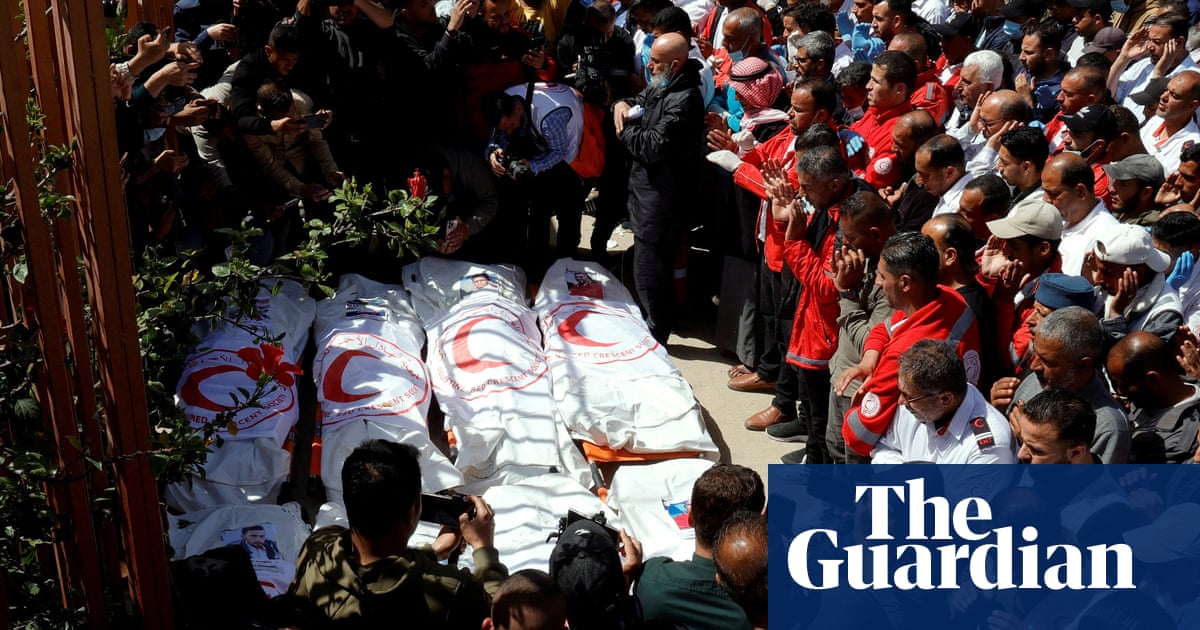Poland has hailed a breakthrough in a painful historical dispute with Ukraine, after it said its neighbour had agreed to allow exhumations of Polish citizens massacred by Ukrainian nationalists in the second world war.
Warsaw is one of Ukraine’s strongest supporters in the EU, offering military and diplomatic support, but for years ties have been strained over a historical atrocity – the massacre of as many as 100,000 Poles by Ukrainian nationalists between 1943 and 1945.
After a meeting with Ukraine’s president, Volodymyr Zelenskyy, in Warsaw on Wednesday, Poland’s prime minister, Donald Tusk, said the two countries were finding “a common language and methods of joint action on the Volhynia massacre and “sensitive dramatic issues in our history”.

“They require empathy from Ukraine towards Poland and from Poland towards Ukraine,” Tusk told reporters.
The Polish government has said Ukraine has agreed to the exhumation of remains of the first victims to take place, to enable Polish families to bury their relatives with dignity.
The mutual understanding and action “deserves to be seen as a breakthrough” Tusk said.
Zelenskyy and Tusk pledged to “continue developing constructive historical dialogue” as part of a wide-ranging statement covering European security, cutting off Europe’s use of Russian energy and the reconstruction of Ukraine.
Volhynia (Wołyn), a region which has changed hands numerous times and now lies in Ukraine, suffered Soviet, then Nazi occupation.
After the Wehrmacht arrived in 1941, its Jewish population was largely murdered in the Holocaust. In 1943, as the Soviets advanced, but the Nazis remained in charge, Ukrainian nationalists massacred tens of thousands of Polish citizens in a bid to ensure the territory did not become part of post-war Poland.
The Polish government has said that in July and August 1943, 40,000-60,000 Polish people, mainly women and children, were killed in Volhynia. As many as 40,000 more Polish nationals were murdered in the region of Eastern Galicia. Jews, Czechs, Hungarians, Russians and Ukrainians trying to help their neighbours were also victims of the mass killings, according to historians.
Polish underground forces went on to kill 10,000 Ukrainians in reprisals, historians have said.
In 2013 the Polish parliament – dominated by Tusk’s centre-right Civic Platform party – adopted a resolution defining the killings as “an ethic cleansing with signs of genocide”.
The massacres were carried out by the Ukrainian Insurgent Army (UPA) and part of the Organisation of Ukrainian Nationalists, groups that followed the far-right leader Stephan Bandera. Imprisoned for fighting Polish authorities in west Ukraine in the 1930s, Bandera joined sides with the German army to fight the Soviets, only to fall out with half the OUN and the Nazis. He spent the rest of the war in prison and was assassinated by the KGB in 1959.
Bandera and his fighters have been hailed as heroes by some modern Ukrainian nationalists. In 2021, for example, Poland and Israel condemned a decision to name a football stadium in Ternopil after a UPA commander implicated in the massacre of Polish and Jewish people.
The massacres were little known in Ukraine, a legacy of Soviet propaganda, even as they moved to a more prominent place in Polish memory of the second world war.
The issue could feature in Poland’s presidential campaign in May, as the main nationalist opposition candidate, Karol Nawrocki, is the head of the National Remembrance Institute.
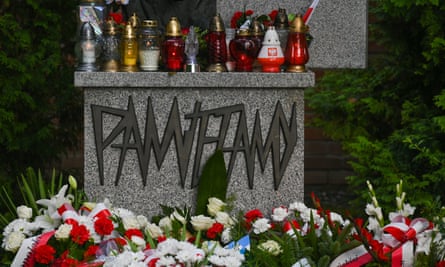
Nawrocki, who is backed by the rightwing populist Law and Justice (PiS) party, has previously said he could not see Ukraine joining either the EU or Nato until “important civilisational issues” for Poland were resolved.
The deputy prime minister, Władysław Kosiniak-Kamysz, who is also defence minister, said that Ukraine could not join the EU without resolving the issue.
Tusk promised on Wednesday that he would seek to accelerate Ukraine’s EU accession talks during Poland’s six month presidency of the Council of the EU, which began this month. He added: “I will not allow this difficult, tragic history to be exploited in political games in Poland.”
Zelenskyy did not comment on the topic in his opening remarks, but when asked, said ministries of culture in both countries had been making progress.
“We should be making progress,” he went on. “We are neighbours and our biggest threat is Russia and this is a threat now, here and tomorrow. We should do everything to make our cooperation stronger.”

 3 months ago
47
3 months ago
47
